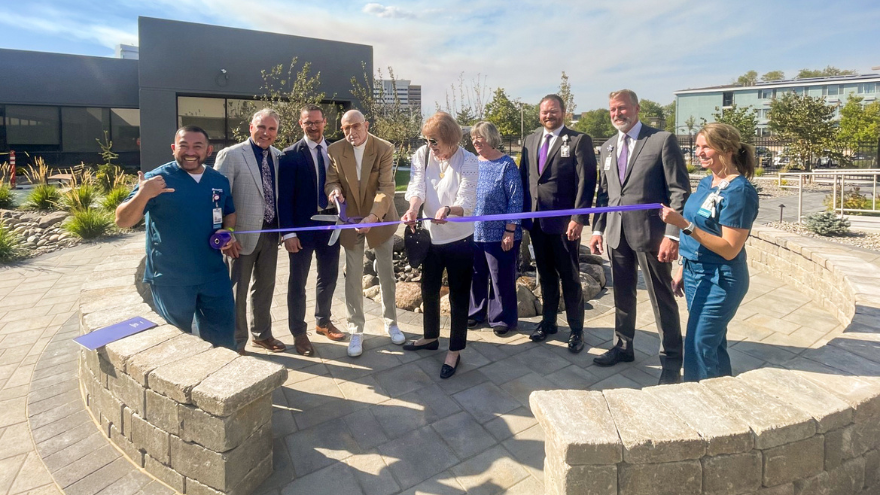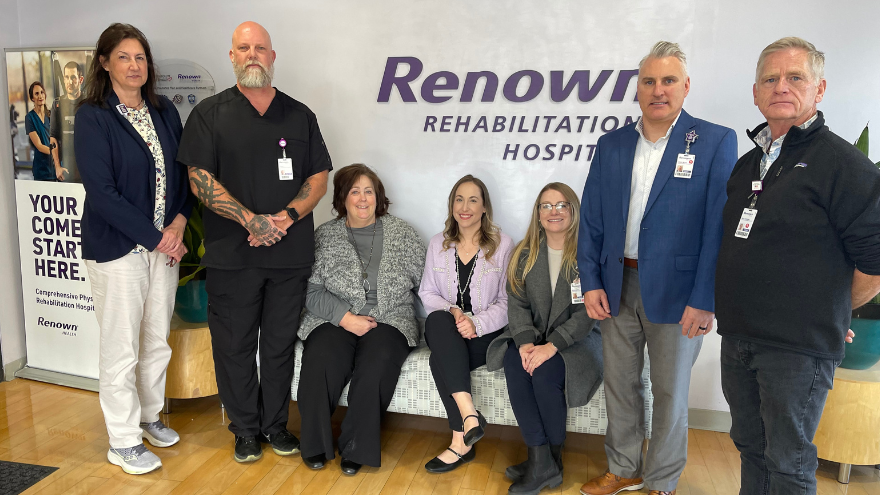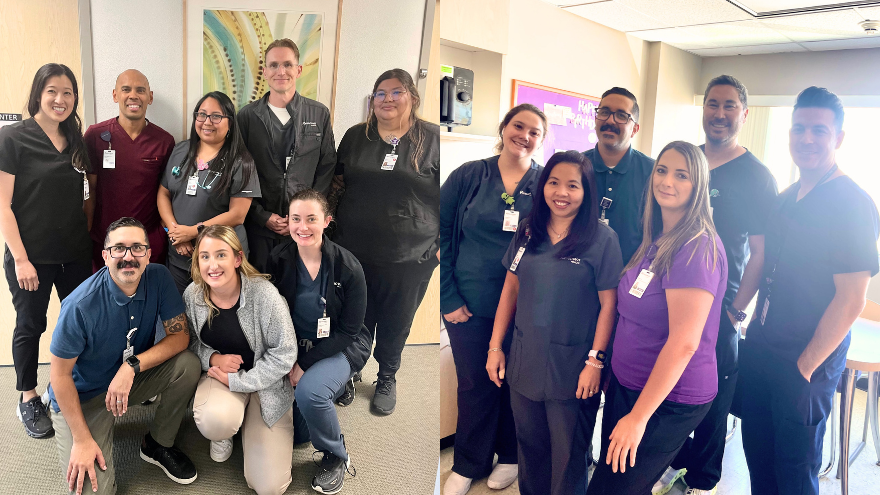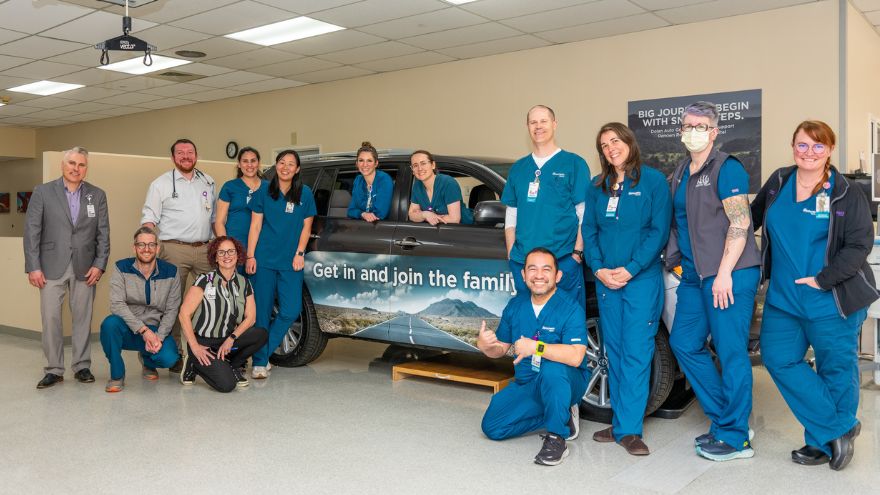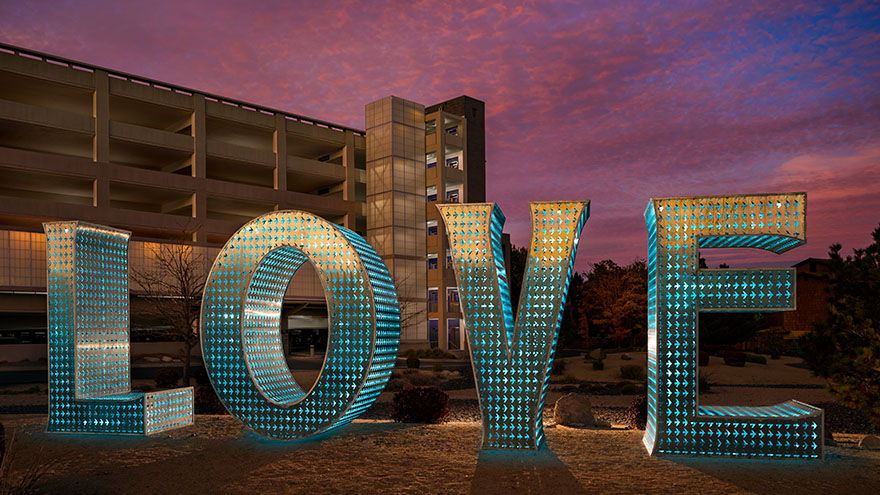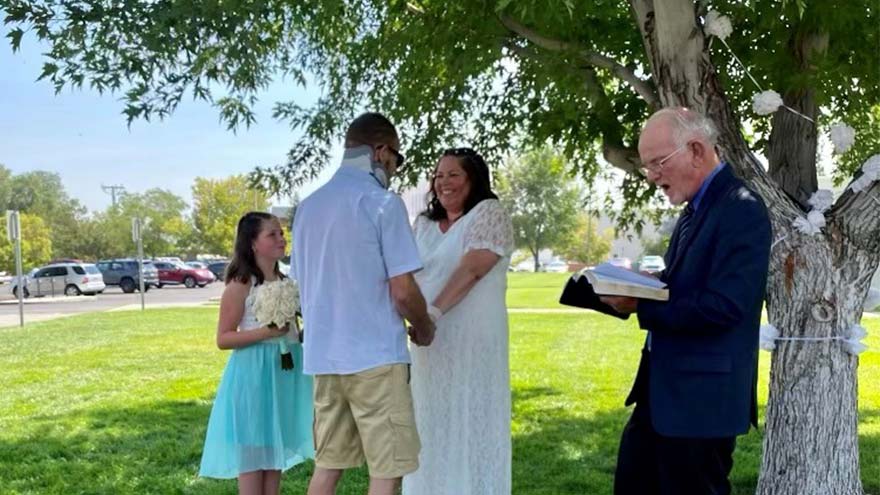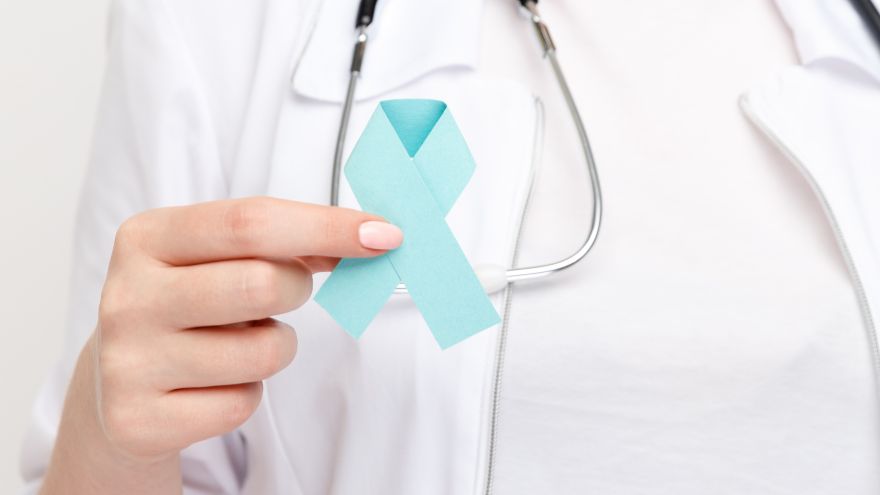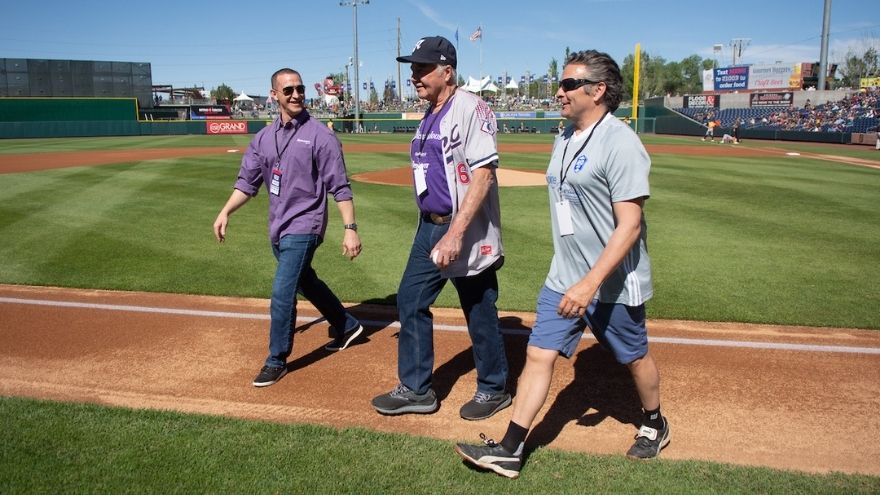Search
-
A New Therapy Garden: Enhancing Recovery at Renown Rehabilitation Hospital
Last fall, Renown Rehabilitation Hospital unveiled the Rehabilitation Therapy Garden, supported by the Estelle J. Kelsey Foundation, a space designed to support rehabilitation patients on their path to recovery. Made possible through the generosity of donors, this innovative garden provides therapeutic tools to help individuals regain independence and improve their quality of life. "If a patient is recovering from a spinal cord injury, stroke, or brain injury, they might face challenges like stairs, ramps, and uneven surfaces for the first time. Without training, these obstacles can be hard to navigate. The Rehabilitation Therapy Garden gives patients and their families the chance to practice and gain the skills they need to move confidently in the community and become more independent,” said Shawn Morris, Renown Rehabilitation Hospital Director of Rehab Operations. One of the garden’s highlights is a wheelchair course with ramps of varying difficulty, allowing patients to practice navigating different terrains. This hands-on therapy is essential for those recovering from strokes, brain injuries, orthopedic injuries, or trauma. It builds strength, mobility, and confidence by simulating real-world challenges in a safe and supportive environment. “The garden is great, it’s all set up to practice things like stairs and ramps, plus it’s nice to look at,” said a patient at Renown Rehabilitation Hospital. Key Features of the Rehabilitation Therapy Garden: A wheelchair course to simulate diverse terrains that patients may encounter in the community. ADA-regulated ramp with bilateral railings, like those found in public spaces. Outdoor seating areas for therapeutic and recreational use. Raised garden beds for accessible gardening activities. Lush landscaping that promotes a calming atmosphere. Tools and stations designed for physical therapy exercises. A calming fountain that enhances the garden’s peaceful atmosphere, providing a soothing environment. A putting green that promotes balance and durability and is a patient favorite. Pathways for walking, offering a safe and scenic environment for patients to practice mobility. View photos of the Rehabilitation Therapy Garden here.
Read More About A New Therapy Garden: Enhancing Recovery at Renown Rehabilitation Hospital
-
Department Spotlight: Transitional Care Coordinators
Transition into the new year with our Transitional Care Coordinators at Renown Rehabilitation Hospital! As a patient, your healthcare journey may seem overwhelming and confusing. Add a significant injury to the equation, and now you potentially have a rehabilitation detour on your road to recovery. Then you have to think about what happens next after you head home? In-home physical therapy? Home health? More rehab? There are many questions to answer about the next steps in your journey. Enter: Renown Rehabilitation Hospital’s Transitional Care Coordinators (TCCs). As a rehab patient’s key support in the transition from hospital to home, this department ensures everyone on a patient's care team has the best information to deliver care after discharge while remaining in constant communication with the patient and family to meet their unique health needs. At the Right Time, In the Right Place The role of our Transitional Care Coordinators at our rehab hospital is exactly what it sounds like: helping patients transition from a hospital or rehabilitation setting back to their home or a lower level of care. Every step of the way, these experts are laser-focused on making sure patients continue to receive the support they need during this key transition period. "The main goal of the Transitional Care Coordinator is to get the patient to the appropriate level of care at the right time and the right place,” said Marty Ackerman, Senior Transitional Care Coordinator. “Our day involves collaborating between the inpatient physiatry team, consulting team and attending team at the acute level, as well as the discharge planning team. We work with the patient’s family to come up with the best plan of care, whether it’s home health, inpatient, outpatient or acute care. Day to day, we see about 20-25 patients.” Once a patient is released to go home after rehab, our Transitional Care Coordinators ensure each patient is properly set up with physical, speech and occupational therapy in an outpatient setting or at home. Working closely in tandem with the TCCs, the Discharge Planning Assistant sets up transportation, equipment and more. “I start by listening in on our morning meeting to see who we might bring in, what the doctors say and what the rest of the team thinks in regard to seeing if a patient is appropriate for care at Renown Rehabilitation Hospital,” said Emma Van Patten, Discharge Planning Assistant. “I work closely with case management, so if any patient needs discharge equipment to safely get around, such as a wheelchair or a walker, I will order it from a durable medical equipment (DME) company or home health if the patient needs more assistance at their house when they leave. I set up transport for all the hospital admits and make sure everyone gets their equipment on time before they leave.” The reach of the TCCs goes beyond hospital walls. In fact, their reach even goes beyond state lines and country borders. If a member of our community is injured and wants to come back to Reno for treatment, our TCCs will work with teams around the world to make that a reality. "Recently I was able to help a member of our community, who was injured in California, come back to Reno and undergo rehab here,” said Sharon Trimmer, Transitional Care Coordinator. “It was a collaborative effort with the team that we got the referral from in California, working closely with insurance companies, working with doctors here, coordinating the transfer back from California – it was all especially rewarding. The patient was so grateful to be back home.” "I love it when we work with these externals and get them back home,” added Marty Ackerman. “It is really quite an accomplishment. A patient can be in Europe, Asia, anywhere – we will help them. I was able to admit someone from Latvia by working with a global travel insurance company. We got medical records transcribed from Russian to English, and the patient’s family was very helpful with the translation.” Thanks to the above-and-beyond efforts of the entire team at Renown Rehab and the best-in-class level of care they provide, our rehab hospital has been nationally recognized. And this award will certainly not be the end of the accolades the hospital collects. "Becker's Hospital Review recently ranked Renown Rehabilitation Hospital as a top rehab facility in the state of Nevada and the U.S.,” said Marty Ackerman. “This was a very proud moment for us.” “Every day is different. Each day we continue to experience new situations and challenges,” added Sharon Trimmer. “I appreciate the help of the team members who each bring unique perspectives and experiences to problem solve for the best outcomes. I love the opportunity to continue learning on daily basis.” Our Transitional Care Coordinators would like to emphasize to readers that anyone is more than welcome to come to Renown Rehabilitation Hospital for a tour. They look forward to sharing what they do with our growing community.
Read More About Department Spotlight: Transitional Care Coordinators
-
Department Spotlight: Physiatry
Pain is a top reason that Americans seek access to healthcare. In fact, according to the U.S. Pain Foundation, chronic pain affects nearly 50 million people across the country. More than likely, you know someone who has been impacted by chronic or acute pain. Fortunately, there is a talented team of healthcare professionals committed to rehabilitating and enhancing the life of any patient living with pain. At Renown Health, these team members represent the Physiatry department, who are charged with a goal of maximizing physical function, managing pain and nurturing independence. Headquartered at Renown South Meadows Medical Center, patients suffering with a disability, chronic pain and physical impairments can rest assured that they have the most caring and compassionate physiatry experts on their side throughout the entire physical rehabilitation process. What is Physiatry? Physiatry (also known as physical medicine and rehabilitation, or PM&R), is a medical specialty that helps diagnose and treat conditions related to the musculoskeletal and nervous systems. Unlike other medical fields that often use surgery or medication, physiatry emphasizes non-invasive techniques, therapies and interventional procedures to help with pain and improve physical function. Renown’s physiatry team has a holistic approach to care, combining medical expertise with personalized rehabilitation strategies to support long-term health and independence. Physiatry is hyper-focused on diagnosing, managing and treating conditions that affect physical function and quality of life. The Physiatry Philosophy Our Physiatry team’s treatment philosophy centers around a multidisciplinary approach that combines medical care with rehabilitation and healthy lifestyle changes. They offer a variety of programs and services, including: Home Exercise Programs: Customized exercises designed to strengthen muscles, improve flexibility and support recovery. Physical Therapy: Hands-on care from skilled therapists who guide patients through techniques to restore function and reduce pain. Well-Being and Lifestyle Support: Emphasizing overall health and encouraging lifestyle changes that support physical and mental well-being. At Renown, the Physiatry department is full of friendly faces, including: PM&R and pain medicine physicians (also known as physiatrists) Medical assistants Physician scheduling coordinators Patient access representatives Practice site leaders Physiatrists set each patient up for success with education, treatment planning and management. They take advantage of cutting-edge technologies and interventions for pain, such as: Epidural Steroid Injections (ESIs) Facet Joint Injections Radiofrequency Ablation (RFA) Trigger Point Injections Joint Injections (Knee, Shoulder, Hip) Physiatrists are also masters of multidisciplinary care, coordinating with members of a patient’s healthcare team (including physical therapists) to ensure they have the best treatment plan possible. Playing a crucial supportive role, physiatry medical assistants (MAs) assist our physiatrists in caring for patients on both a clinical and administrative level. From helping during procedures to providing education and guidance, these medical professionals are key in ensuring each patient’s visit – and as a result, their rehabilitation journey – is successful. “My normal day in Physiatry is very smooth,” said Rosita Gans, Medical Assistant. “I make sure my schedule is at 100% to prioritize patient needs. It helps that everyone is so respectful and friendly.” Our patient access representatives (PARs) and physician scheduling coordinators are the front faces of physiatry. They serve as a patient’s first line of communication when checking in, making an appointment, handling insurance verifications and several aspects of follow-up – all with a smile on their faces. “My job as a PAR involves checking patients in and out, verifying their insurance and demographic information, scheduling and following up on appointments, referrals to Special Procedures and more,” said Andrea Ruiz, Patient Access Representative. “I am in contact with patients on a daily basis.” “It’s all about making sure every patient is taken care of in a timely manner,” added Kasey Sinfellow, Physician Scheduling Coordinator. At the core of keeping things running, you’ll find Antonio Quintana, Practice Site Leader. Thanks to his expert leadership skills and can-do attitude, his department has been able to reach new heights. A large part of this team’s success lies in their approach to the practice of physiatry. For them, there is no such thing as a “cookie cutter” treatment plan. Dr. Casey Keating, a pain management physician working with the Physiatry team states, “We understand that there is no ‘one size fits all’ when it comes recovery. We come up with a plan of action customized to meet your needs.”
-
Tariqs Journey of Resilience at Renown Rehab
Pictured above are members of the interdisciplinary team at Renown Rehabilitation Hospital, representing the diverse array of caregivers who supported Tariq's recovery journey. For Tariq Kuraishy and his wife Melissa, the focus is on his journey and getting back to life as he knew it rather than the stroke he experienced in June 2024, which led him to Renown Regional Medical Center and later to Renown Rehabilitation Hospital (otherwise known as “Renown Rehab”). From the swift assessment by first responders to the immediate treatment at Renown Emergency Room and the critical care received in Renown's Intensive Care Unit (ICU), Tariq’s journey has been marked by resilience and exceptional support beyond the couple’s expectations. Navigating the First Moments After Stroke Melissa shared how Tariq’s care team’s calm demeanor and expertise eased the initial shock of his diagnosis, treatment and plan of care. For Melissa, staying informed during crucial care discussions was vital. She noted that the team's professionalism and reassurance gave her the confidence to let go of some of the mental and emotional burden she felt during the immediate period after the stroke, allowing her to focus on both her and Tariq's physiological and emotional needs. “I felt very safe being at Renown, knowing that we were being cared for to the greatest extent,” said Melissa. Rising to His Personalized Rehabilitation Plan Tariq began the Renown Rehab program on June 19 with one goal in mind: to regain 70% of his brain function within 30 days. To achieve this, he spends four to five hours per day participating in physical, occupational, speech and recreational therapies as part of a comprehensive rehabilitation program tailored to his specific needs. If that sounds like a rigorous schedule, it's because it is, but Tariq prefers it that way because it means he’s actively working towards regaining his sense of normalcy with his care team alongside him every step of the way. “Unlike other places that might take a more lenient approach, the responsibility for progress not only lies with the Renown Rehab team but also the patient. If you are prepared to do the work, Renown Rehab is prepared to get you there,” Tariq said. Melissa emphasizes that Renown Rehab provides comprehensive, whole-person care with a variety of innovative, individualized therapies. These therapies keep patients engaged and busy throughout the day, addressing not just the affected areas but also the entire body and mind, ensuring holistic recovery and facilitating progress in unique ways. Activities like catching a ball or putting a ball in a hole help restore function, much like restoring power to a building that has lost electricity. It’s All About the Support and the Team’s Know-How From the moment he arrived, the Renown Rehab team has been continuously assessing Tariq’s abilities and tailoring his rehabilitation plan to propel him to the next level. Melissa, who spends up to 12 hours a day at the facility supporting her husband, highlighted the daily therapeutic sessions as an impressive way the care team evaluates Tariq’s readiness for more challenging tasks. Communication between the couple and Tariq’s team of doctors, nurses, therapists, techs and certified nursing assistants is constant as they actively involve them in decisions. As Tariq put it, they don’t cater to his comfort zone but instead push for progress, understanding it may not always be linear. It’s a true collaboration. “It doesn’t feel like it's being done to us but being done with us,” Melissa said. Looking Ahead Tariq and Melissa feel immensely fortunate to be at Renown Rehabilitation Hospital, which offers an exceptional blend of equipment, technology and expert care teams. “The Rehab facility is a treasure,” Tariq said. “Every member of the care team has displayed the utmost level of professionalism and expertise, and there hasn't been a single person who hasn't shown compassion and competence,” Melissa added. “I feel I will get the most out of being at Renown Rehab. I plan to take full advantage of the services and use every bit of the team’s talent, training and expertise. I will not leave anything on the table,” Tariq said. As Tariq continues to progress, he and Melissa are optimistic about the future. Tariq continues to receive physical, occupational and speech therapy at Renown Rehab. Their journey, marked by determination and strong support from Renown, offers hope to others facing similar challenges.
Read More About Tariqs Journey of Resilience at Renown Rehab
-
A Gift From Dolan Auto Group
One of the first challenges Renown Rehabilitation Hospital patients face at discharge is entering a vehicle. This task holds significant importance for those on the road to recovery. Now, patients at Renown Rehabilitation Hospital can practice getting into a car before leaving, thanks to a generous donation from the Dolan Auto Group—a Toyota Highlander. This transformative gift was received by Renown Health Foundation last November. It allows therapists to help patients relearn and practice the critical skill of independently entering and exiting a vehicle. For Renown, the Dolan donation enhances our rehabilitation programs, nurturing a brighter and more self-reliant future for those in our care. Real-world practice is invaluable for those recuperating from illness or injury. "The Highlander enables patients to gain confidence in returning home and into the community, fostering independence," said Seth Langevin, Vice President of Neurosciences & Cardiovascular Service Lines at Renown Rehabilitation Hospital. “These opportunities help patients rebuild skills for life beyond the hospital walls,” continued Langevin. Dolan Auto Group's generosity echoes the spirit of community and underscores the power a vehicle can have in shaping lives and advancing healthcare in northern Nevada. A Legacy of Generosity The Dolan family, led by Tom Dolan, the owner, and founder of Dolan Auto Group, alongside his sons, Ryan, and Brady, has a long history of supporting Renown Health. In 2019, Tom's personal experiences in healthcare inspired him to generously contribute to the existing Pulmonary Rehabilitation Program at Renown South Meadows. Tom's donation doubled the equipment in the program, significantly expanding the number of patients we can treat and improving access to pulmonary rehab for our community. In recognition of his generosity, the program was named the Thomas S. Dolan Pulmonary Rehabilitation Program. Last year, Brady Dolan, COO of Dolan Auto Group and dedicated member of Renown's business board, spearheaded their donation of the Toyota Highlander to Renown Rehabilitation Hospital. Reflecting on his donation, Brady said, “Our community thrives when we come together to support one another.” Brady's dedication to helping others extends far beyond this donation. He's been a devoted supporter of Renown for years, volunteering on the Renown Health Foundation board and actively participating in events like Miracles at Montreux for Renown Children’s Hospital. Together with his family, Brady's ongoing kindness makes a significant difference in northern Nevada. The Impact of the Toyota Highlander Since the Highlander arrived at Renown Rehabilitation Hospital, its impact has been remarkable. Functional mobility has increased by 20 percent among over 500 patients who used the car. Car transfers, one of 22 crucial functional tasks assessed by the rehabilitation team, have seen substantial improvement. “The immediate progress highlights how crucial this donation is for advancing rehabilitation efforts at Renown, reinforcing our commitment to improving patient outcomes and restoring independence,” said Langevin.
-
Life after Lymphedema Diagnosis: What to Expect
Managing lymphedema effectively is essential for enhancing the quality of life for individuals affected by this condition. Katherine Bunker, a Physical Therapist and Certified Lymphedema Therapist (PT, DPT, CLT) at Renown, has expertise in this area and her insights offer valuable strategies for managing lymphedema. Lymphedema is a chronic condition characterized by swelling in one or more limbs due to a blockage in the lymphatic system. This condition can result from cancer treatments, surgery, infection, or can sometimes be congenital. While it can be challenging to live with lymphedema, understanding the condition and adopting specific lifestyle changes and strategies can significantly improve the quality of life. Understanding Lymphedema Educating yourself about lymphedema is crucial. Understanding the causes, symptoms, and potential complications can provide you with the tools to manage the condition proactively. Lymphedema can lead to discomfort, decreased mobility, and in severe cases, infections such as cellulitis. Therefore, recognizing the early signs and knowing when to seek medical advice is essential. Medical Management Consulting with healthcare professionals who specialize in lymphedema is critical. A physiotherapist or occupational therapist trained in lymphedema management can tailor a treatment plan for you that can include the following: Compression Therapy - Wearing prescribed compression garments can help move the lymph fluid and reduce swelling. It’s essential to get fitted by a professional and understand how to use these garments correctly. Manual Lymphatic Drainage (MLD) a gentle massage technique that encourages the movement of lymph fluid out of the affected limb. It’s typically performed by a trained therapist but ask about self-massage techniques you can do at home.
Read More About Life after Lymphedema Diagnosis: What to Expect
-
Love Endures: A Remarkable Recovery Leads to a New Future
It’s true that a road trip can change your life, and it did for Sergeant Brandon Ott, just not in the way he was expecting. For nine years, Brandon worked alongside his friend, Denton Tipler, at the police department in Florence, Oregon. To break the monotony of the COVID-19 lockdown, they planned a ‘guy’s trip’ - a pandemic safe, motorcycle adventure traveling through Idaho and Washington. On the morning of July 22, 2020, they set out on their journey. But by 8 p.m., they ran into rough weather - with wind, poor visibility and heavy rain as they rode into Nevada. Four miles from their destination, on a desolate stretch of Highway 140, a gust of wind hit Brandon. Denton watched in disbelief as his friend bounced, tumbled and ultimately came to a stop after sliding over 100 yards. He flagged down the next vehicle, a semi-truck, and the driver did traffic control while another passerby drove to get cell service and call 911. A Distressing Call About 10 p.m. the same night, Angie Brog, Brandon’s partner, picked up her phone at the Florence police station. A Nevada highway patrolman let her know Brandon was in a motorcycle accident and had been taken to a hospital in Winnemucca, NV. From there he took a life flight to Renown Regional Medical Center. Angie immediately called Brandon’s parents and told Addison, their 9-year-old daughter, the news. They quickly packed their bags and drove to Nevada. On the drive to Reno, an ER doctor called Angie to give her Brandon’s status, “I can’t thank him enough. I was so worried. He even gave me his personal cell phone number.” Upon arrival, she ran to see Brandon in the trauma ICU. “His face was shattered, he had a collapsed lung, a tube was down his throat and something was in his head to relieve pressure from his swelling brain,” she remembers. “He was not expected to live.” While Brandon was in a coma for three days, Angie was by his side, trying to come to grips with a new normal. “The doctors did not sugarcoat it,” she recalls. “They told me to prepare myself if he pulled through.” It was a rough week in the ICU with Brandon heavily sedated, so he could heal. From there he was transferred to the neurology floor, where he slowly improved. While there, his daughter Addison got to see him for the first time. Angie says, “When Addison saw her daddy for the very first time, she was relieved, happy she could hug him, and that he was alive.” Miraculously his legs were not broken and he was able to hold simple conversations and walk a few steps. As the days went on, Brandon’s dad returned to Oregon, and the Inn at Renown became the family’s new home. “It was such a blessing to be so close to Brandon,” Angie observes. “It allowed us to relax a little being in the same building and let us settle in.” The Comeback Brandon’s first memory after the accident was waking up in the Renown Rehabilitation Hospital, 16 days after his accident, not knowing where he was. (Brandon experienced amnesia due to his brain injury and doesn’t remember the days prior to his rehab stay.) He recalls looking around the hospital room and seeing the photos Angie posted of their family on the walls and wondering, “How did they get pictures of my family?” Immediately after learning that Brandon was awake, Angie raced back to the hospital, went outside his window and talked to Brandon on the phone, reassuring him that they were there for him and everything was going to be ok. The next morning, he saw Addison for the first time that he remembered since his accident. They each put their hands to the hospital window “touching” each other in an emotional reunion. During the pandemic, each rehab hospital room was designated with an animal, so family and friends could visit outside safely. Brandon was in the ‘moose’ room. “Whoever thought of that was a genius,” notes Brandon. A new phase of Brandon’s recovery began at the rehab hospital. "He worked so hard while he was there,” Angie shares. With a minimum of three hours of daily therapy sessions, including speech, occupational and physical therapy. Angie participated in every aspect of his therapy, “I learned so much from the therapists; they included me in everything,” she recalls. “The compassion and patience they have is amazing. It takes a special type of person to do this job. I cannot say enough good things about the Renown Rehabilitation Hospital staff. If he would have been anywhere else, I’m not sure he would be alive,” she says. It wasn’t easy. Brandon had a brain injury that required a bolt in his skull to relieve the pressure, and a broken left collar bone and left eye socket. His entire face had to be reconstructed. He remembers his face hurting and thinking he looked like Freddy Krueger. When he saw himself in the mirror for the first time, he was surprised to find he only looked thinner, with a gauze pad on his temple. Prior to the accident, Brandon weighed 300 pounds, but had just finished a year-long fitness journey losing 119 pounds, by doing CrossFit and overhauling his diet. During rehab his weight dropped to 160 pounds and he was known as “the double portion” guy, eating extra food to gain weight. Shaun Stewart, Therapeutic Recreational Therapist, recalls Brandon riding the recumbent cycle during his recovery. “I remember him saying he didn’t know if he was ever going to be able to ride a bike again and was appreciative when adaptive sports were discussed. He was very willing to participate and excited to be able to get on a bike again. He had a positive attitude and always was willing to get up and get back on the bike.” Better Together Although Angie and Brandon were in a committed relationship for almost 11 years, they were not legally married at the time of his accident. “In our minds, our lives were perfect,” Angie asserts. “We had lived together for so long and have a child together.” However, because of COVID-19 restrictions, Angie had to lie and tell the medical staff that they were married so she could be by his side. When Brandon woke up from a coma, she told him, “No matter what I’m your wife.” He asked, “What do you mean, you are my wife?” After hearing Angie’s explanation, Brandon said, “Then, let’s do it.” “We realized when faced with death that the benefits far outweighed the negatives in becoming husband and wife,” Angie discloses. “The rest is history.” On Tuesday, August 18, 2020, Brandon and Angie were married underneath the trees behind the rehab hospital. Their family, friends and several staff members attended the ceremony. “I think that’s a first for us,” declares Dr. Gavin Williams. “I cleared him for capacity to make decisions, and we had a COVID-friendly wedding on our back lawn before he went back home to Oregon.” The next day, Brandon officially left the hospital. “I felt good. Like ‘he’s gonna make it,’ but I was also scared,” mentions Angie. The family stayed in town for a couple of days to make sure everything was ok and then traveled home to Oregon.
Read More About Love Endures: A Remarkable Recovery Leads to a New Future
-
Learn How to Manage Lymphedema
Katherine Bunker, Physical Therapist and Certified Lymphedema Therapist (PT, DPT, CLT) at Renown, discusses how patients can manage lymphedema with changes to daily routines along with diet and exercise. Lymphedema is a condition that affects millions of people around the world. It is a chronic and progressive disorder that results in swelling of the arms, legs, or other parts of the body due to an accumulation of lymph fluid. Lymphedema can occur because of cancer treatments, surgery, or other medical conditions. Managing Lymphedema Treatments to help reduce symptoms such as pain, swelling and discomfort associated with lymphedema can include compression garments, exercise, skin care, manual lymphatic drainage and pneumatic compression. The goal is to avoid triggering the onset of lymphedema. Lymphedema can present itself immediately after surgery or radiation. It can appear months later or even years later. There are many factors that influence the development of lymphedema which is why prevention is so important. If you have had injury or disruption to your lymphatic system, then: Avoid injuries to the skin near the affected area. For example: wearing gloves during gardening, using bug spray to ward off mosquitos, covering your limbs while playing with pets, keeping nails clean and avoiding cutting too close to cuticle, utilizing electric razors at the armpit (instead of a traditional razor)., Avoid blood pressure readings to the affected limb or request blood pressure to be taken manually, not by a machine. Avoid heat like saunas, hot tubs, sunburns, hot packs, and even massages. Avoid tight jewelry like rings or bracelets, which can be too tight.
-
Preventing Spinal Cord Injuries: What to Know
If you're not taking safety precautions during mountain sports, you could be at risk for a spinal cord injury. Dr. Benjamin Pence of Renown Rehabilitation Hospital explains the best way to prevent this serious injury. Mountain sports are a big part of the winter season here in our area, but if you’re not practicing all the proper safety techniques, you could end up with a serious spinal cord injury. Benjamin Pence, MD, Renown Rehabilitation Hospital, is here to offer tips to prevent this serious injury while you’re out enjoying what the Truckee Meadows has to offer. What is the spinal cord? The spine stretches from the base of your skull to the coccyx (commonly referred to as the tailbone). Your spine is made up of 24 vertebrae—seven cervical, which are in your neck, 12 thoracic, which are in your chest, and five lumbar, which are in your lower back. There are ligaments and muscles attached to each vertebra. These facilitate back movement and protect the bones from damage. There is cartilage between each vertebra which acts as a shock absorber for your spine. Finally, the spinal cord is a long, thin, tubular bundle of the nervous tissue and support cells that is enclosed in the spinal canal and send signals from the brain to everything from your arm and leg muscles to bowel and bladder function. The brain and spinal cord together make up the central nervous system.
Read More About Preventing Spinal Cord Injuries: What to Know
-
Know Before You Go
Grab your skis, goggles, coat – and don’t forget that helmet. Skiing and snowboarding are fun activities for all ages but come with the risk of injury. Read on for tips to make it a safe day on the mountain. Daydreaming about your next trip to the slopes? We talked to Jared Worchel, DO, about his top tips for gearing up. Get the Gear Before you head out to ski or snowboard, make sure you have all your gear ready and in good condition. Everything should fit correctly so that it keeps you as safe as possible. Wearing proper gear will also help keep you warm. Items to check on before you head out include: Boots Bindings Goggles Poles Helmet Outwear Gloves Pack water and snacks in case the drive takes longer than you except due to weather or traffic. You’ll also want to make sure that your cell phone is fully charged before you head out in case you need to contact friends of staff for help while on the mountain. Helmet, Helmet, Helmet Having a helmet that fits correctly is the most important thing you can do to prepare for a safe day on the mountain. According to a National Ski Areas Association study, helmet use has increased over the last 15 years, with 80 percent of skiers and snowboarders using helmets. Schubert would like to see that number increase to 100 percent. “If you have a head injury it could take you out for the rest of your life,” Dr. Worchel said. “The most important things to think about when fitting a helmet are making sure that it really fits you appropriately. You want to go into a store and try on as many different helmets as they have available. I know it’s tempting to buy one online, but you’re never going to know if it fits correctly.” If you are in an accident, your helmet’s fit can help protect you. Dr. Worchel has some tips on fitting: A helmet should fit low and snug over the head. Make sure that the helmet doesn’t wiggle or feel loose. Look for a model that has adjustability in the back, which will help you make sure it fits snugly. F ind a helmet with a chin strap that will help it stay in place throughout the day.
-
Dave's Story: How One Ranger Drove On
Meet Dave Pierson and his Wife Kathy Dave Pierson, 73, and his wife Kathy were just ten days away from a celebratory retirement trip to Africa in May 2021 when severe leg pain and discomfort landed Dave in the Veterans Administration (VA) Hospital. Unbeknownst to the couple, they would not be making the trek to Africa, and it would be several weeks before Dave would be back home with his wife in Carson City, their life drastically different than before. It all happened so fast. After a prompt referral from the VA Hospital to Renown Regional Medical Center, Dave received treatment for a bacteremia infection and underwent emergency spine surgery due to an epidural abscess. However, once his surgeon Edward Perry, MD completed the emergency procedure at Renown Health, Dave learned there was still a long road ahead. He had extremely limited body function and would need to learn to walk again. A Husband, Baseball Fan and Veteran Until this emergency spinal cord surgery, Dave had lived an especially healthy life in his retirement, traveling the world with Kathy, taking photographs along the way and attending ball games for their beloved team, the Reno Aces. Dave, a Vietnam veteran, and Kathy planted their roots in Carson City surrounded by countless friends and family, eagerly awaiting Kathy’s retirement. The Long Road Ahead It was those same friends and family who remained by Dave’s side throughout his recovery process. At the advice of the Renown team, Dave began a personalized physical rehabilitation plan at Renown Rehabilitation Hospital just days after his initial surgery. It was with the help of Charles Krasner, MD, an Infectious Disease Specialist that Dave made a smooth transition to be cared for at the Rehabilitation Hospital. Dave spent six weeks of inpatient treatment relearning fundamental occupational skills and motor functions such as eating and drinking, getting dressed, using a wheelchair and eventually taking his first steps, aided by a walker. The couple proudly remembers a day at the Rehabilitation Hospital when Dave successfully buttoned up his shirt using a small apparatus designed to aid in the task. "It was a little thing, but it was a monumental thing," Kathy shared. Dave achieved physical and cognitive victories, both on a small and large scale, over the next six weeks. Kathy visited every day she could, always prepared with a photo of the couple's past travels to encourage Dave. The Rehabilitation Hospital staff grew close with the Piersons, sharing stories and photos of their dogs, travels and life. The nurses kept Kathy updated about her husband’s condition and prepared her for the journey to come, this included extensive education related to Dave’s future at-home care. Benjamin Pence, MD, Dave’s lead rehabilitation doctor and the Director of the Institute for Neurosciences, always seemed to know just how to motivate Dave on his most challenging days. As a ranger in Vietnam, the phrase, “drive on ranger” meant a lot to the veteran when it came to determination and perseverance. So, the phrase was used as encouragement by Dr. Pence and the Rehabilitation Hospital team throughout Dave’s journey, becoming a fond memory about hope and determination during recovery.
-
When Is It Time to See a Physiatrist
Physiatry (fi-zahy-uh-tree), also referred to as physical medicine and rehabilitation, encompasses the diagnosis, prevention and treatment of disabilities or injuries related to the brain, nerves, bones and muscles. The goal of this specialty is to maximize physical functioning, greatly decrease or eliminate pain, foster independence and improve quality of life for those suffering with a disability, chronic pain and physical impairments. Who Is It for? Physiatry can help patients with functional deficits and secondary medical conditions as a result of the following: Amputation Brain Injury Osteoarthritis Spasticity and Movement Disorders Spinal Cord Injury Spine Pain Sports-Related Injuries Stroke Some of these medical conditions can often cause chronic pain or impede physical functioning, ultimately affecting a person’s overall well-being and making it difficult for them to sustain a desired quality of life.
